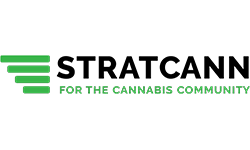Ontario is planning to add $31 million to its budget to address illegal cannabis stores and websites operating in the province.
As part of Ontario’s Budget 2024, it says it plans to provide the funds over three years to the Provincial Joint Forces Cannabis Enforcement Team (PJFCET).
The PJFCET is led by the Ontario Provincial Police’s centralized enforcement unit, which targets illegal cannabis storefronts. This investment, says the province, would enable the PJFCET to “respond to the challenge of illegal online operators and crack down further on the production, sale and distribution of illegal cannabis in the online and offline space.”
Toronto City Council recently passed a motion asking the province to undertake a comprehensive review of the Provincial Cannabis Control Act, 2017. The motion says a review is “imperative to ensure the effective regulations and enforcement of cannabis-related matters” in Ontario.
Municipalities need more tools and resources to address these illegal cannabis businesses, the motion continues, including “exploring options to strengthen enforcement measures, increase penalties for non-compliance, and improve collaboration between municipalities and provincial authorities.
“I think $31 million could be spent in a better way than prohibition enforcement.”
Jennawae Cavion, Calyx + Trichomes
In a recent interview with City News, Carleton Grant, Executive Director, Municipal Licensing and Standards at the City of Toronto, says that while many illicit cannabis shops shuttered voluntarily in the first few years of legalization, new illegal stores have been popping up.
Grant says there are currently 53 illegal, unlicensed cannabis stores now operating in Toronto and 215 legal ones (The AGCO currently lists 204 stores as being authorized to open in Toronto).
Enforcement in Ontario has been ongoing. Just this past February, the PJFCET executed nine search warrants at different locations associated with illicit cannabis stores.
Raj Grover, the founder and CEO of High Tide Inc., which operates 58 legal cannabis stores in Ontario, says he is happy to see the province looking to address these types of businesses, especially online stores.
“I welcome the Ford Government’s decision to take aggressive action against illegal online cannabis dispensaries, who blatantly target kids and sell unsafe products,” says Grover. “Today’s move makes it clear that Ontario is committed to safety and supporting its legal cannabis industry. We look forward to continuing to work with Attorney General Downey and Minister Bethlenfalvy on further legislative and regulatory reform to help bolster Ontario’s regulated cannabis sector as it continues to convert consumers away from a resilient illicit market.”
Jennawae Cavion, however, founder of Calyx + Trichomes in Kingston and the Executive Director of Norml Canada, says she thinks the money could be better spent on assisting the legal industry instead of on shutting down illegal stores, especially given how easily these stores and websites can open up again.
“I think that they need to invest in ways to make the cannabis industry more sustainable and more inclusive so that there’s no reason for unregulated suppliers to want to exist,” Cavion tells StratCann. “I think $31 million could be spent in a better way than prohibition enforcement.”
Given the challenges legal store owners face in trying to follow all the rules to stay compliant, she says she understands why many operating in the illicit space are not interested in closing down or transitioning.
“There’s a lot of hurdles that we still need to jump over, as legal retailers. That $31 million would go a long way to helping instead of going after people who can just open up again the next day.”
The push for more resources to address illicit sales, especially online stores, echoes a similar call for action from the federal government’s expert panel that looked at the federal cannabis legislation.
The report said, in part, that the federal government should consider creating authorities to force internet service providers to block illicit cannabis websites and to compel financial service operators to provide financial information that helps identify illicit online operators. It also called on law enforcement to “focus its efforts on the activities of organized crime and criminal networks, the diversion of cannabis from sites registered for personal and designated production, the proliferation of retail stores on First Nations reserves operating without provincial, territorial, or community authorization, and illicit online sellers,” and noted that regulatory authorities have a role to play in combating the illicit market, not just law enforcement.
The provincial budget also shows that Ontario brought in $310 million from its share of provincial excise on cannabis sales, with $344 million expected in 2023-24 and $379 million in 2024-2025. The Ontario Cannabis Store brought in another $234 million in 2022-2023, with $242 expected and $225 million.
Related Articles
![]()


